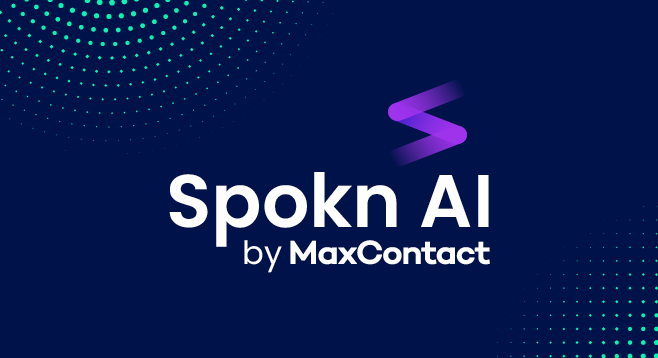According to our Benchmark Report, the average call centre loses 30% of its agents each year, yet most training programs haven’t evolved beyond basic scripts and interspersed feedback sessions. But what if your agents could learn from your top performers, and listen to actual conversations instead of generic best practices? AI-powered speech analytics transforms how contact centres train their teams, turning every customer interaction into a potential coaching moment.
The challenges facing call centre training today are multifaceted and culminate to create a negative cycle of agent churn. High staff turnover rates put pressure on call centres to onboard quickly. But rising customer expectations demand agents who can handle complex interactions with empathy and expertise. Unfortunately, traditional training methods often fall short in preparing agents for real-world scenarios.
Without data-driven coaching, agents receive generic feedback that fails to address their individual performance challenges. This one-size-fits-all approach leaves gaps in skills development and missed opportunities to develop your team’s existing expertise.
In this article, we’ll share 15 actionable training tips to help you revolutionise your contact centre’s approach to agent development. Drive performance across your entire team by improving onboarding efficiency and encouraging continuous learning strategies with the help of AI-powered contact centre software.
By implementing these strategies, you’ll reduce turnover costs and create a more engaged workforce that delivers exceptional customer experiences.
Call Centre Training: Our Top Tips
1. Develop a comprehensive onboarding program
A sleek and structured onboarding plan equips new agents with the necessary skills and knowledge they need to succeed. The most efficient onboarding programs combine classroom training with shadowing experiences and gradually incorporate call handling responsibilities as agents grow in confidence. This methodical approach helps new hires build confidence and helps to reduce the overwhelming feeling that often leads to poor agent retention.
Learn more about improving call centre staff retention
2. Build a culture of continuous learning
Top-performing contact centres don’t see training as a one-time event, never to be repeated. Instead, it is treated as an ongoing process. By providing regular training sessions and upskilling opportunities, you keep agents engaged and ensure their skill set is adaptable to meet changing customer needs. To achieve this, consider implementing micro-learning sessions, peer coaching, skill development pathways and build a culture that prioritises personal development to support performance.
Discover how to improve contact centre performance this year
3. Give agents the tools they need to succeed
Regardless of experience, even the best-trained agents won’t consistently perform to the best of their ability without the right technology. Modern contact centre platforms successfully integrate customer information, communication channels, and knowledge bases into a single platform. This helps agents to access everything they need without jumping between multiple interfaces. By reducing agent frustration and improving operational efficiency, cloud-based content centre platforms boost the quality of customer interactions and overall call performance outcomes.
Explore what Contact Centre as a Service (CCaaS) can offer
Learn how MaxContact’s platform allowed APJ Solicitors to increase call volume by 110% within the first year of onboarding.
Read the full case study
4. Arm agents with effective call scripts
Well-designed call scripts help agents handle various scenarios confidently and maintain brand consistency. The key is creating scripts that guide conversations without sounding robotic. Effective scripts will incorporate decision trees for common questions, objection responses, and provide clear next steps; all while giving agents enough flexibility to personalise interactions.
Learn how to write a call centre script in 6 easy steps
5. Make sure agent training covers call handling, product knowledge and internal processes
Agent training must go further than basic call etiquette. To feel confident on the phone and provide customers with a positive experience, agents need to develop deep product knowledge. They also need an understanding of internal processes, so they can resolve any issues efficiently, such as when to escalate a complaint for example.
Call training should also include hands-on practice with your contact centre software, which helps agents navigate systems smoothly (and quickly) during live calls. This approach reduces average handle time, boosts customer satisfaction, and minimises repeat calls.
Learn how to reduce average handle time in your call centre
6. Regularly analyse key performance metrics
If you don’t actively measure and review performance KPIs, how can you improve them? Regularly assessing KPIs will help you identify specific training needs and areas for improvement across your team much more easily. The first step is to focus on metrics that matter most to your business objectives, whether that’s first call resolution, customer satisfaction scores, conversion rates, or average handling time.
Discover how to measure call centre efficiency
“We can now measure what we need to measure – performance, productivity, call rates and so on, whenever we need to.” Steph Warricker, Operations Manager at D2MS.
Read the full case study
7. Use AI Speech analytics to gain deeper performance insights
AI speech analytics transforms how you analyse and interpret customer interactions. With the ability to search transcribed files for key phrases, and insight into customer call sentiment, it:
- Helps QA teams catch compliance issues before they escalate.
- Provide detailed insights that help tailor training agent programs to address specific challenges.
AI speech analytics identifies patterns across thousands of calls that would be impossible to spot through manual review alone.
Explore how speech analytics turns conversations into insights
“Spokn AI will absolutely revolutionise the way we approach sales training and people’s individual performance.” Karl Burke, Contact Centre Manager at Honey Group.
Read the full case study
8. Uncover how your best-performing agents overcome objections
Within your team, you’ll no doubt have your top performers – the ones that are consistent. These agents have already figured out what works and what doesn’t when it comes to overcoming customer objections. With tools like Success Intelligence, it is possible to monitor your best agents and track how they handle common objections. This level of intelligence helps to uncover the most effective techniques for turning objections into conversions and provides real-life examples for training new and struggling team members.
Discover how AI identifies and analyses sales objections
9. Teach agents to recognise and respond to customer emotions
Emotional intelligence is a crucial skill to have in a call centre environment. Frustrated customers need agents who can quickly understand their needs and handle interactions with appropriate sensitivity. Sentiment analysis tools help identify interactions that started with negative sentiment and ended positively. This provides valuable examples that can be used to teach agents how to adjust their approach based on customer emotions.
Learn about sentiment analysis in call centres
10. Make sure compliance is built into call centre training from the start
Non-compliant calls threaten damage to customer trust and can lead to significant financial penalties. AI-powered speech analytics helps QA teams uncover potential compliance risks through keyword searches and pattern recognition. This paves the way for proactive coaching, allowing non-compliant behaviour to be identified and rectified quickly before it becomes a repeated habit.
Explore how to remain compliant whilst driving B2C outbound sales
11. Enhance quality assurance processes for shorter feedback loops
Not only are traditional manual call reviews time-consuming, they also only cover a small sample of agent-customer interactions. This is problematic for call centre training for two reasons:
- Because call reviews take so long to complete, feedback is delayed and shared with agents long after any incidents happen.
- A large percentage of calls go unchecked, wasting potential coaching opportunities, and leaving agents repeating the same mistakes.
AI-assisted quality assurance streamlines the review process and enables QA teams to assess more calls. This helps managers to spot issues faster and significantly shorten feedback loops.
Learn about using AI speech analytics for quality assurance
12. Improve outbound success with smarter call centre training
Outbound sales relies on a different skill set compared to inbound support. Agents need specific training on effective outreach techniques, handling objections, and timing calls to achieve better response rates. AI call analytics provides invaluable insight into what works and what doesn’t in outbound interactions, allowing you to refine scripts and approaches based on proven success patterns.
Discover how to use speech analytics to increase B2C outbound sales
13. Train agents to manage high-stress interactions effectively
Handling frustrated or angry customers is never an easy task; it’s perhaps one of the more challenging aspects of call centre work. Call centre training should include techniques that agents can apply in these situations to help them stay calm under pressure and work through issues appropriately. De-escalation, active listening, and problem-solving should all be practised during role-playing exercises that explore challenging scenarios and help build confidence for new agents.
Access scripting templates for difficult customer interactions
14. Train agents to handle multi-channel customer interactions
Modern call centres aren’t just about voice calls. In this day and age, customers interact via email, chat and social media, often switching between channels during the same issue resolution. Train your agents to handle the different communication styles each channel requires while delivering a consistent customer experience regardless of how customers choose to connect.
Explore our ultimate guide to omnichannel contact centre software
15. Give clear feedback led by data instead of vague opinions
Vague feedback like “be more empathetic” or “sound more confident” is open to interpretation and rarely drives meaningful improvement. An advanced speech analytics platform provides call centre managers with detailed performance insights for their agents. This helps transition from generic feedback that often goes unactioned to specific, data-led coaching with actionable takeaways that measurably improve performance.
Learn how conversation intelligence enhances call centre training
By combining technology with proven training strategies, your call centre can turn every interaction into a coaching opportunity. Are you ready to take agent performance to the next level?
See how MaxContact’s Contact Centre Software can support you.





